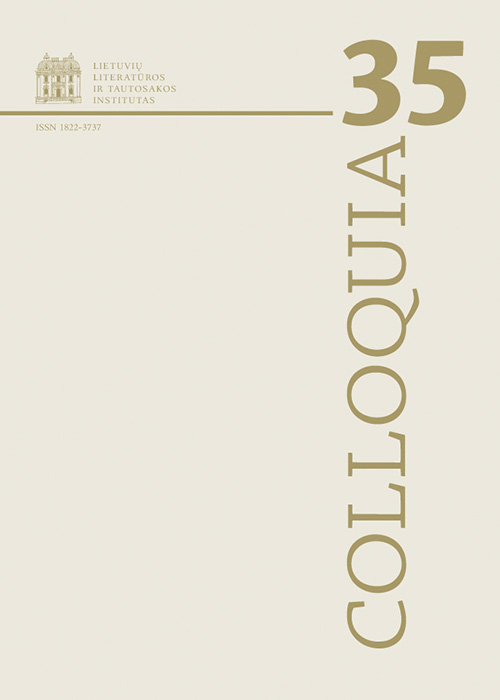Lithuanian Jewish Writers’ Career Paths During the Soviet Period: Between Adapting Within the Republic and Participating in the Empire
Abstract
The author of this article analyzes how Soviet national policy and Jewish culture’s lack of legitimacy impacted the career paths of Jewish writers living in Lithuania and their relationship with the Lithuanian literary field. The article examines the careers of five Jewish writers – Hiršas Ošerovičius, Jokūbas Josadė, Ichokas Meras, Mykolas Sluckis, and Grigorijus Kanovičius – and their different relationships to the Lithuanian literary field. The author applies an interdisciplinary approach, examining these writers’ strategies within the contexts of Soviet ethnic policy and national processes. Building on previous studies, the article opens up a broader perspective on Jewish writers’ options, constraints, and choices both within Lithuania and at the union level.
These examples of Soviet-era Jewish writers’ career paths reflect the considerable tensions felt by writers not belonging to the dominant culture when experiencing Soviet ethnopolitics. Writers experiencing a lack of cultural legitimacy had to maneuver: they had to blend into the Lithuanian literary field, participate in it episodically, or be involved in several literary fields simultaneously. It is possible to single out writers’ participation only within the Lithuanian literary field (Meras, Sluckis); their totally or partially articulated strategies of assimilation; their participation within the Lithuanian literary field and within rather fragmented “islands” of Yiddish literature (Josadė, Ošerovičius); as well as (drawing increasingly on the thematics of Jewish history) their active maneuvering between the Lithuanian and Russian literary fields (Kanovičius), which offered artists greater possibilities for recognition. Kanovičius’s model of the Jewish writer/artist’s participation in the empire is the most marked embodiment of the Soviet-era Jewish intellectual’s multi-layered identity.




